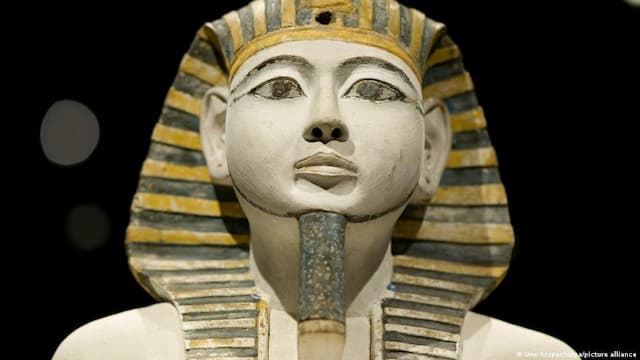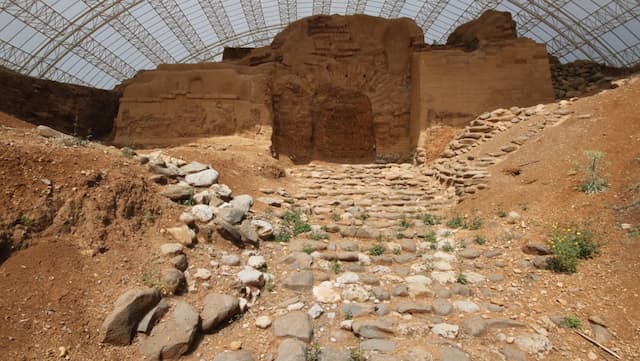Which Jesus Do You Want? (Matthew 27:15–26)

“Jesus Barabbas? Or Jesus called Christ?” What’s your response to Pilate’s question?
The governor was not convinced Jesus had done anything deserving death (27:23). He knew it was out of self-interest that the leaders had handed him over (27:18). He moved to pacify the crowd by offering a prisoner release, giving them the choice.
It seems both men were named Jesus (though this detail is omitted from some ancient manuscripts of Matthew). Pilate offered the people this choice (27:17):
Who do you want me to release to you?
– Jesus son of Abba (Bar-Abbas), or
– Jesus called anointed leader (Christ)?
Jesus was a relatively common name, meaning The Lord saves (compare Matthew 1:21). It’s the Hebrew name Joshua. But these two Jesuses have radically different views on how to save God’s people.
Jesus Barabbas was more like the Old Testament Joshua who led the struggle to drive the Canaanites from the Land. He was a freedom-fighter seeking to restore Israel as a kingdom of God instead of serving Caesar. No doubt he saw himself serving a holy cause in the tradition of the judges whom the Lord raised up to save them out of the hand of those who plundered them (Judges 2:16). This approach gave him a high profile as a well-known prisoner (27:16).
But while Barabbas saw himself as a saviour, to the Romans he was a terrorist and a murderer — a view shared by the evangelists (Mark 15:7 || Luke 23:19 || John 18:40). Jesus the Christ took a completely different approach to restoring the kingdom of God. Departing from the tradition of Joshua and Judges, Jesus of Nazareth insisted his people must love their enemies, not kill them (Matthew 5:44).
Pilate could see the difference. He found Jesus’ non-defensive posture astounding: But Jesus made no reply, not even to a single charge — to the great amazement of the governor (27:14).
Which Jesus would you follow? The freedom-fighter, or the love-teacher?
The trouble with the one called Christ is that he doesn’t match our expectations of saving us. The Christ standing before the governor does not look like a saviour, handed over by his own people (27:2, 18), handed over by his own disciple (27:3-4), about to be handed over to be crucified (27:26). Love is a lovely ideal, but Jesus Barabbas makes more sense to the crowd.
That’s still the case for many today. For many Jews, Jesus was not a messiah because he failed to save his people. For many Muslims, force is justified. Jesus’ approach is so counter-cultural that even many Christians believe in killing for self-defence or national defence. Some Liberation Theologians still promote Barabbas’ approach of using arms to free oppressed people.
Jesus’ approach to saving his people looks hopeless. Barabbas wins. The crowd get their hero, while God’s anointed is handed over to be crucified (27:26). Barabbas walks away, a kind of anti-Christ — a killer in Christ’s place. He cannot save his people, of course. Now they have more blood on their hands (27:25).
Violence never solves violence … unless you think the Christ absorbing the violence could save the world?
Which Jesus do you follow?
The text
Matthew 27:15-26 (my translation, compare NIV)
15 It used to be a Feast tradition for the governor to release to the crowd one prisoner they wanted. 16 Back then they had a well-known prisoner called Jesus Barabbas. 17 Having pulled the crowd together, Pilate addressed them, “Who do you want me to release to you: Jesus Barabbas, or the Jesus they call anointed leader?” 18 For he’d realized it was through self-interest they handed him over.
19 As he was seated on the judge’s seat assigned to him, his wife said, “Do nothing to yourself and that innocent person. For I suffered a great deal today in a dream on his account.”
20 But the high priests and elders persuaded the crowds that they should ask for Barabbas and do away with Jesus.
21 In reply, the governor said to them, “Which of the two do you want me to release to you?” They said, “Barabbas!” 22 Pilate says to them, “What should I do with Jesus, the one they call anointed leader?” 23 They all said, “Have him crucified.”
23 But he said, “What evil has he done?” They shouted all the more, “Have him crucified!” 24 When Pilate saw he would gain nothing but more rioting, he poured water and washed his hands in opposition to the crowd, saying, “I am innocent of his blood. See to it yourselves.”
25 All the people answered, “His blood be on us and our children.” 26 Then he released Barabbas to them. Jesus he flogged and handed him over to be crucified.
What others are saying
Jeannine K. Brown, Matthew, Two Horizons NT Commentary (Grand Rapids, MI: Eerdmans, 2018), 249–250:
The name Jesus was a common one in the world of first-century Judaism; according to Bauckham’s analysis, it was the sixth most popular male name among Palestinian Jews between 330 BCE and 200 CE. So it would not be strange to have two prisoners in Roman custody with this same name. Pilate puts before the Jewish leaders and the crowds a choice between two men: Jesus Barabbas and Jesus, the one called Messiah.
R. T. France, The Gospel of Matthew, NICNT (Grand Rapids, MI: Eerdmans, 2007), 1053–1054
Jesus Barabbas is known to us only from the gospel passion narratives. Mark 15:7 identifies him as a leader in a recent (otherwise unknown) violent insurrection. Mark says others were imprisoned with him awaiting sentence for the same offense, and the fact that Matthew describes Jesus as crucified between two “bandits” (vv. 38, 44), using the term lestes which Josephus regularly uses for those who fought against the Roman occupation, leads many to conclude that they too were members of Barabbas’ group. John 18:40 directly describes Barabbas as a lestes. These data, together with the fact that the crowd wanted Barabbas released, strongly suggest that he was not a common criminal but a freedom fighter — to the Romans an insurrectionist, but to the Jews a patriot.
Related posts
- The king who comes in peace (Mt 21:1-9)
- Why did Jesus have to die? (Mt 26:47-56)
- The powerful God who reigns in weakness
- Who will save us?
Seeking to understand Jesus in the terms he chose to describe himself: son of man (his identity), and kingdom of God (his mission). Riverview College Dean
View all posts by Allen Browne











